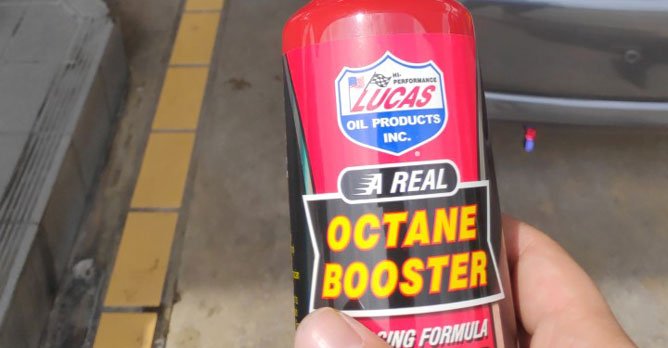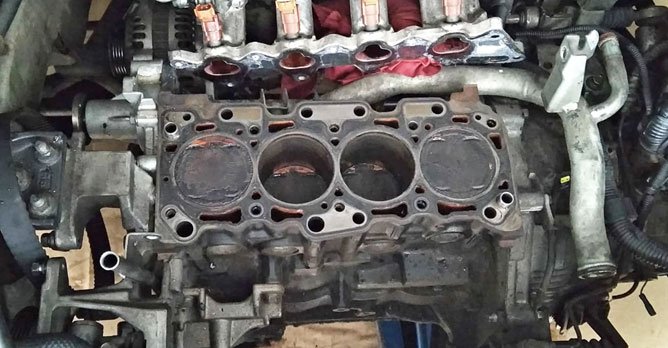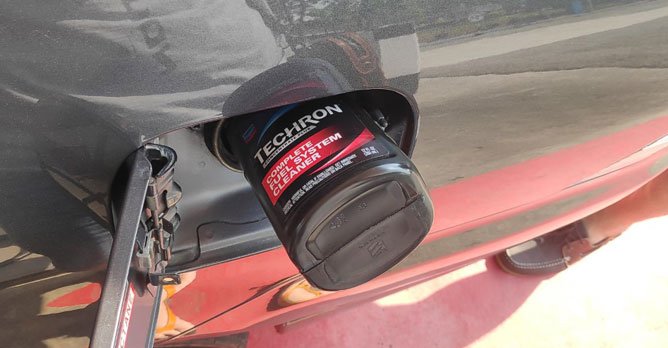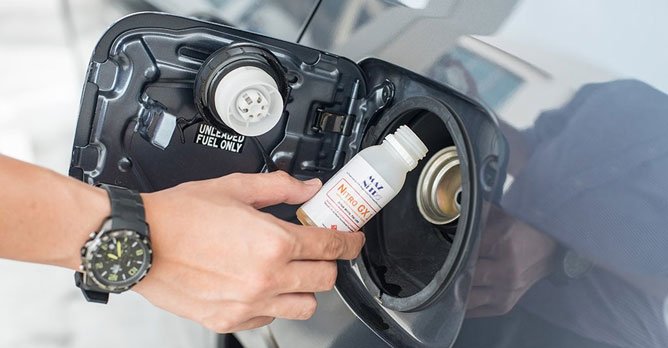Do fuel injector cleaners and octane boosters work?
18 Nov 2020|35,032 views
What are additives? Think of it as vitamin supplements, but for your car. Vitamin supplements can be highly beneficial to the health of those who aren't able to meet their daily nutritional requirements. Of course, there are sayings that they are beneficial for everyone.
Likewise, fuel additives, such as a fuel injector cleaner or an octane booster can offer tangible benefits - provided that your car requires it. And often, there are little to no harm to using them, other than the cost of buying them.
Types of fuel additives
To find out if your car can benefit from a fuel additive, you need to know what additives are commonly available in the market, and what they actually do.
1. Fuel injector cleaners / fuel system cleaners
These fuel cleaning additives are formulated to get rid of deposits that are left in your car's fuel system, such as the injectors, valves and piston tops. With regular usage, deposits build up, restricts fuel delivery and cause reduced engine performance and poor fuel economy.
Fuel injector cleaners and fuel system cleaners attempt to get rid of the deposits so as to restore the engine's efficiency and performance.
2. Octane boosters

Higher octane fuel is more knock-resistant (the fuel can withstand more pressure before detonating), and is usually required by performance engines. You should only be considering the use of octane boosters if your car requires fuel of a higher octane level than what you are able to obtain.
3. Fuel stabilisers
Yes, fuel does go bad. Petrol can degrade over a time of as short as three months when stored in a sealed container, if left in a car's fuel tank, it will start to degrade in about month's time. Fuel stabilisers are additives that prolong the lifespan of stored fuel by preventing oxidation. They are engineered to bond with petrol to create a protective layer in order to extend the lifespan of fuels.
These additives are best used in cars that are not driven often, and aren't started up for weeks on ends - such as collectible classic cars.

4. Performance enhancement / fuel-saving additives
These are usually a combination of octane boosters and fuel cleaning additives - as the effect of them can all contribute to improved performance and fuel economy, albeit not by a long shot.
Such additives are generally suitable for all kinds of cars and are unlikely to result in any harmful effects. However, they can be rather costly and the high cost often outweighs the benefits, if any.
Engine oil additives

However, as long as you stick to a premium quality engine oil you should be fine. Oil companies spend much time and money to research and develop engine oils that are already loaded with additives to help maintain a clean and healthy engine - you shouldn't have to splurge on additional additives.
Moreover, there's always a slight chance of an incompatible additive resulting in a worse performing engine oil than before.
So should I use a fuel or engine oil additive?

If there's really a need, you might consider the use of fuel system cleaning additives once or twice a year to keep your car's fuel system and injectors clean. But remember, the innards of your engine can only be cleaned that much without being taken apart for a thorough overhaul.
Most importantly, just keep to a timely routine of high quality engine oil changes and top your car up with premium-grade fuel and it should be fine - just like how a healthy diet and regular exercise will keep the doctor away.
Here are some articles you might be interested in
Six car myths that are burning a hole in your pocket
Here's how you can improve your engine's fuel consumption and performance
Many drivers have heard of these fuel-saving tips but do they really work?

Sgcarmart
Compare the Best Petrol Credit Cards
Save up to 25% on your petrol bills!
- Maximise your savings at Shell, ESSO, Caltex & SPC petrol stations
- Apply to receive welcome offers and online promotions!
What are additives? Think of it as vitamin supplements, but for your car. Vitamin supplements can be highly beneficial to the health of those who aren't able to meet their daily nutritional requirements. Of course, there are sayings that they are beneficial for everyone.
Likewise, fuel additives, such as a fuel injector cleaner or an octane booster can offer tangible benefits - provided that your car requires it. And often, there are little to no harm to using them, other than the cost of buying them.
Types of fuel additives
To find out if your car can benefit from a fuel additive, you need to know what additives are commonly available in the market, and what they actually do.
1. Fuel injector cleaners / fuel system cleaners
These fuel cleaning additives are formulated to get rid of deposits that are left in your car's fuel system, such as the injectors, valves and piston tops. With regular usage, deposits build up, restricts fuel delivery and cause reduced engine performance and poor fuel economy.
Fuel injector cleaners and fuel system cleaners attempt to get rid of the deposits so as to restore the engine's efficiency and performance.
2. Octane boosters

Higher octane fuel is more knock-resistant (the fuel can withstand more pressure before detonating), and is usually required by performance engines. You should only be considering the use of octane boosters if your car requires fuel of a higher octane level than what you are able to obtain.
3. Fuel stabilisers
Yes, fuel does go bad. Petrol can degrade over a time of as short as three months when stored in a sealed container, if left in a car's fuel tank, it will start to degrade in about month's time. Fuel stabilisers are additives that prolong the lifespan of stored fuel by preventing oxidation. They are engineered to bond with petrol to create a protective layer in order to extend the lifespan of fuels.
These additives are best used in cars that are not driven often, and aren't started up for weeks on ends - such as collectible classic cars.

4. Performance enhancement / fuel-saving additives
These are usually a combination of octane boosters and fuel cleaning additives - as the effect of them can all contribute to improved performance and fuel economy, albeit not by a long shot.
Such additives are generally suitable for all kinds of cars and are unlikely to result in any harmful effects. However, they can be rather costly and the high cost often outweighs the benefits, if any.
Engine oil additives

However, as long as you stick to a premium quality engine oil you should be fine. Oil companies spend much time and money to research and develop engine oils that are already loaded with additives to help maintain a clean and healthy engine - you shouldn't have to splurge on additional additives.
Moreover, there's always a slight chance of an incompatible additive resulting in a worse performing engine oil than before.
So should I use a fuel or engine oil additive?

If there's really a need, you might consider the use of fuel system cleaning additives once or twice a year to keep your car's fuel system and injectors clean. But remember, the innards of your engine can only be cleaned that much without being taken apart for a thorough overhaul.
Most importantly, just keep to a timely routine of high quality engine oil changes and top your car up with premium-grade fuel and it should be fine - just like how a healthy diet and regular exercise will keep the doctor away.
Here are some articles you might be interested in
Six car myths that are burning a hole in your pocket
Here's how you can improve your engine's fuel consumption and performance
Many drivers have heard of these fuel-saving tips but do they really work?

Sgcarmart
Compare the Best Petrol Credit Cards
Save up to 25% on your petrol bills!
- Maximise your savings at Shell, ESSO, Caltex & SPC petrol stations
- Apply to receive welcome offers and online promotions!





















